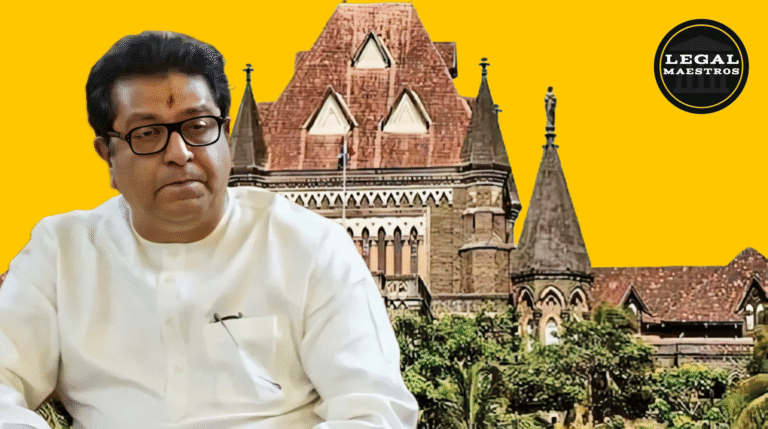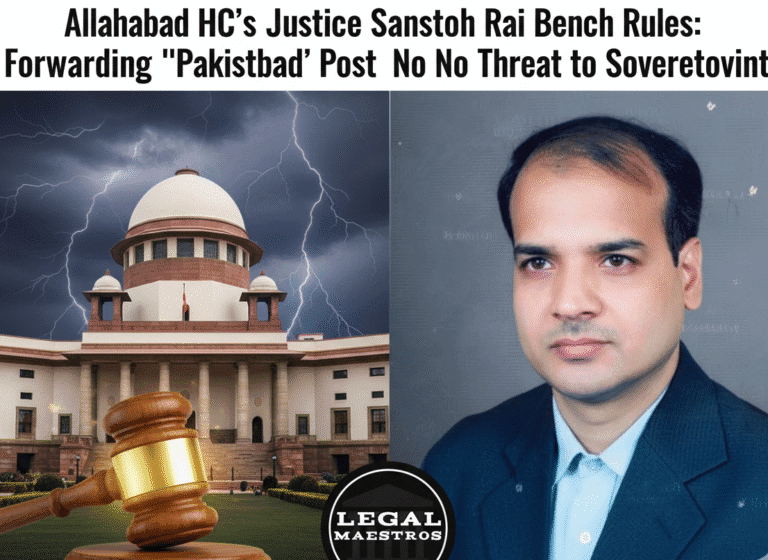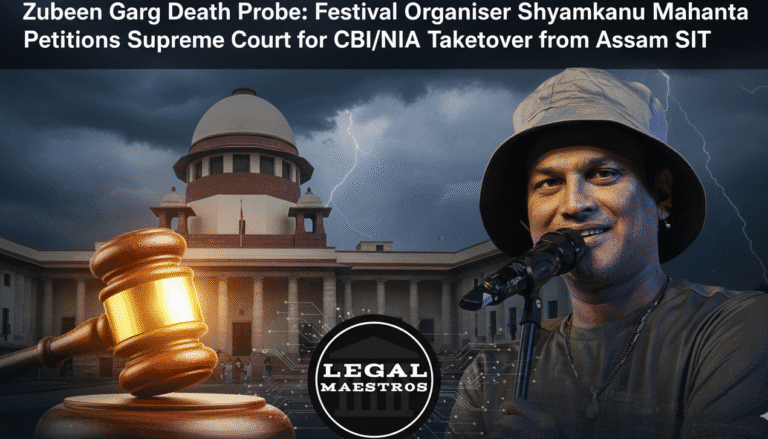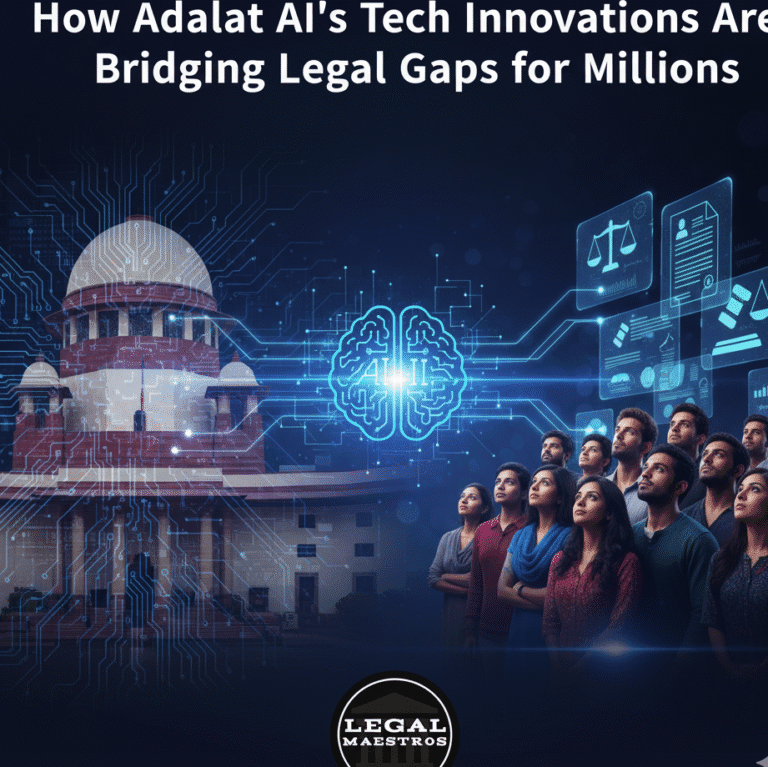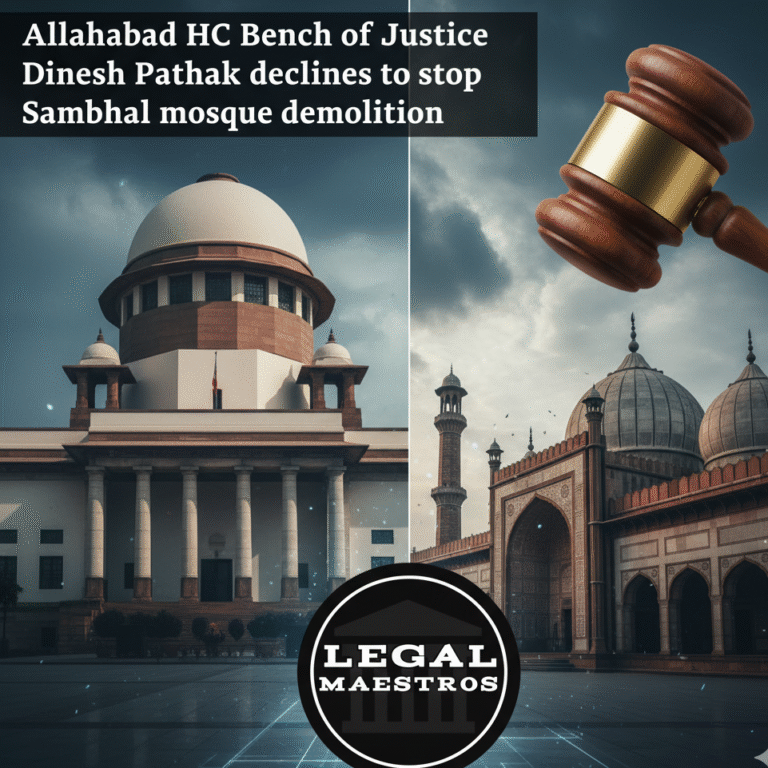
Facts of the Case
The Delhi High Court adjudicated a batch of writ petitions filed by the Union of India against several orders passed by the Armed Forces Tribunal (AFT), including one in the case of Union of India and Others vs. Maj Gen Rajesh Chaba (Retd), wherein the Tribunal had allowed the grant of disability pension to soldiers who were denied such benefits by the competent authorities.
The core issue revolved around disabilities like Primary Hypertension and Ischaemic Heart Disease (IHD) that had manifested during peace postings, not in field or high-altitude areas. The Centre challenged the AFT orders on the ground that such disabilities were not attributable to or aggravated by military service, as determined by the Release Medical Board (RMB) and Review Medical Boards (RMBs).
Rationale of the Court
The Division Bench of Justices Navin Chawla and Renu Bhatnagar upheld the AFT’s rationale and dismissed the Centre’s challenge. Their ruling centered around:
For any queries or to publish an article or post or advertisement on our platform, do call at +91 6377460764 or email us at contact@legalmaestros.com.
- Stress as a Service Hazard: The Court recognized that stress-related disorders like hypertension and heart ailments could result from prolonged exposure to military life, even outside combat zones.
- Non-speaking Medical Opinions: It was held that the Medical Board’s opinion, which merely stated “not related to service” without specific reasons, could not be deemed conclusive. Lack of analysis of service records, environmental stressors, or even family history rendered the medical opinion arbitrary.
- Statutory Presumption in Favour of Soldiers: Referring to the Entitlement Rules for Casualty Pensionary Awards, the Court reiterated the principle that any disability that arises during service is presumed to be service-connected unless clearly proven otherwise.
- Welfare Jurisprudence: The Court emphasized that pensionary benefits are not acts of charity but a constitutional and legal obligation toward soldiers.
Noteworthy Arguments
For Petitioner:
- Medical Board Supremacy: The Union of India relied on the findings of the RMBs and argued that such expert opinion, unless proven mala fide or perverse, should be final.
- Posting Location: The government held that the absence of field duty or combat situations at the time of onset meant there was no causal connection to service.
For Respondents:
- Presumption Under Entitlement Rules: Since the disability occurred during active service, the burden was on the government to disprove the causal connection convincingly.
- Service-Linked Stress: Soldiers contended that even peace-area postings involved operational stress, rigorous routines, and constant readiness, thereby contributing to such illnesses.
- Inadequate Medical Evaluation: The Release Medical Boards did not analyze family history or suggest alternative causes for the disease.
Exceptionally Good Argument:
For any queries or to publish an article or post or advertisement on our platform, do call at +91 6377460764 or email us at contact@legalmaestros.com.
The soldier’s invocation of Rule 9 of the Entitlement Rules, which creates a presumption in favour of service attribution if the disease occurs during service, played a crucial role. The Court’s rejection of non-speaking medical board opinions further underscored this presumption.
Judgment of the Court
The Delhi High Court upheld the AFT orders granting disability pension, with the following highlights:
- Disabilities arising during service, even at peace stations, must be presumed to be service-connected unless specifically rebutted with cogent reasoning.
- The medical board’s one-line rejection without assigning reasons or examining service records was deemed non-credible and administratively unsound.
- The Court stressed that peace postings cannot be presumed stress-free, and military service, by nature, involves continuous stress and strain.
- The government was directed to comply with the AFT’s orders and release disability pensions accordingly.
Legal Implications and Analysis
Reinforcing Welfare Principles:
For any queries or to publish an article or post or advertisement on our platform, do call at +91 6377460764 or email us at contact@legalmaestros.com.
This judgment significantly reinforces the welfare-oriented approach towards armed forces personnel. The Entitlement Rules, read with service jurisprudence, now gain stronger judicial backing, especially when the nature of evidence produced by the government is superficial.
Raising Accountability of Medical Boards:
The judgment sets a procedural precedent that Medical Boards must give specific, evidence-backed reasons when denying disability attribution. Vague and one-line conclusions will no longer pass judicial scrutiny.
For any queries or to publish an article or post or advertisement on our platform, do call at +91 6377460764 or email us at contact@legalmaestros.com.
Upholding Presumptive Rules:
The Court reaffirmed the well-settled law in Dharamvir Singh v. Union of India and Union of India v. Ex Nk Ram Singh that where the disability arises in service, a presumption on behalf of the soldier would have to be made.
Key Learnings:
For any queries or to publish an article or post or advertisement on our platform, do call at +91 6377460764 or email us at contact@legalmaestros.com.
- Posting location is not determinative. The key is the character and conditions of service overall.
- The onus is on the State to rebut the presumption created by the Entitlement Rules.
- Medical Boards must act with transparency, reasoning, and procedural fairness.
Conclusion
The Delhi High Court’s ruling in Union of India and Others vs. Maj Gen Rajesh Chaba (Retd) serves as a strong reminder that disability pensions are not benevolence but rights, grounded in law and the principle of service-connected sacrifice. By holding the State and its machinery to a high standard of reasoning and compassion, the Court has reaffirmed the dignity of India’s soldiers, regardless of where they serve.
Sources
- Union of India and Others vs. IC 41489Y Maj Gen Rajesh Chaba (Retd), W.P. (C) 5783/2024 & CM Appl 23945/2024, Delhi High Court, judgment dated 1 July 2025
- Dharamvir Singh vs. Union of India (2013) 7 SCC 316
- Entitlement Rules for Casualty Pensionary Awards, 1982 (India)
- Hindustan Times, ‘Delhi HC rules in favour of disability pension for soldiers, says such denial is unacceptable’ (Delhi, 3 July 2025)
For any queries or to publish an article or post or advertisement on our platform, do call at +91 6377460764 or email us at contact@legalmaestros.com.



